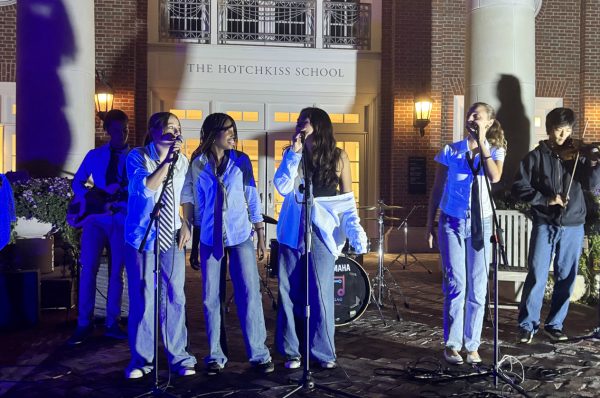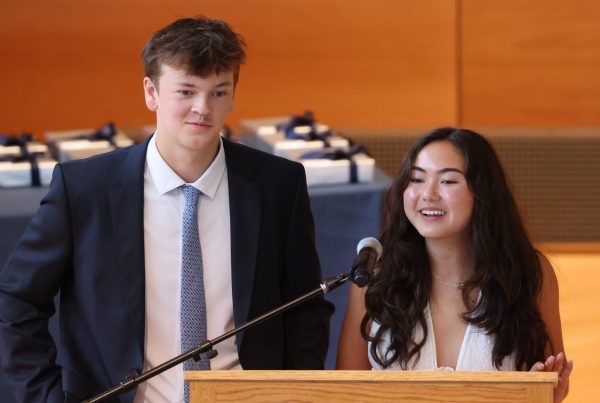BaHSA Panel Confronts Affirmative Action Myths
With almost one million views, Vox’s video titled “What We Get Wrong about Affirmative Action” opened up the Black and Hispanic Student Association (BaHSA) meeting on Tuesday, December 8. BaHSA hosted a panel on the topic of affirmative action in the college admissions process.
The Vox video outlines the historical origins of affirmative action and cleared up common misunderstandings of the policy. Then, BaHSA co-heads, Keeilah Jewell ’22 and Mwicigi Wainaina ’21, posed questions to the two guest speakers, Yale University’s Senior Assistant Director of Undergraduate Admissions, Mr. John Yi, and Gettysburg College’s Senior Associate Director of Admission and Coordinator for Multicultural Admission, Mr. Darryl Jones. Mr. Jones has worked in admissions at Gettysburg College for over thirty-five years, and Mr. Yi has served at Yale University since 2013. Jewell said, “We wanted everyone to understand that people of color aren’t given a special advantage in the college admissions process just because we’re people of color.”
Mr. Jones and Mr. Yi began by giving a brief historical overview of affirmative action policies and then explained how a more diverse student body fosters better discussions and exposes students to broader world views.
Before the creation of affirmative action in 1961, women and people of color were largely excluded from classrooms and offices. Affirmative action, a policy allowing companies and universities to factor in race as a part of candidate evaluation, was enacted by the government to make up for the institutionalized consequences of historical discrimination against minority groups. Nowadays, most universities have adopted this policy for a more holistic student evaluation.
One false belief Mr. Jones and Mr. Yi corrected was that universities have a quota for minority students. For example, Students for Fair Admissions sued Harvard over this issue in 2014. According to the New York Times, they claimed that the school “systematically discriminated against Asian-American applicants in violation of federal civil rights law amounting to an illegal quota system.” The federal judge dismissed the plaintiff’s argument, but noted that admission officers need to develop stronger guidelines to prevent implicit bias.
Mr. Jones and Mr. Yi explained that their colleges evaluate students holistically based on a complex method, taking into account thousands of data points, such as student’s background and access to resources. Race is only one of these data points.
Furthermore, Mr. Yi and Mr. Jones emphasized that no one is entitled to a spot at any school, because all the spots at any university are owned by the school. Mr. Jones said, “The spots belong to Yale, the spots belong to Gettysburg. No ethnicity groups or racial groups ‘own’ any of them.”
The panel ended with an opportunity for students to raise questions. Amelia Wang ’21 inquired whether schools who use affirmative action would consider socio-economic backgrounds of students within the same racial group. Both admission officers responded that students’ status as first-generation college students and their socio-economic backgrounds are all considered.
Students participated in a follow-up open discussion hosted by BaHSA on Friday, December 11.
Quotes have been lightly edited for clarity.




